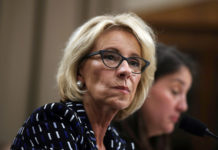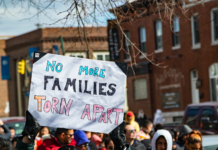The Stanford Law and Policy Lab and Stanford Law’s Youth & Education Law Project (YELP), on behalf of the California Charter Schools Association (CCSA), released a guide today to address increasing student absences and decreasing parental participation in California’s public charter schools among immigrant families in the wake of recent federal policy changes.
Recognizing those concerns, CCSA partnered with YELP and the Policy Lab to provide guidance to California’s public charter schools in how to ensure that the needs of all students are met in school. YELP clinic students Jonathan Berry-Smith, Sarah Brim, Carolyn Hite, and Ray Li, led by William Koski, Professor of Clinical Education, and Michael Wald, Professor of Law, Emeritus, produced a guide that provides schools with information regarding methods by which they can provide the highest quality education to undocumented students and students who have undocumented parents.
“All Californians want their schools to be safe and welcoming for children and their families–these guidelines will help administrators, teachers, and families create just such a learning environment,” said Koski. Added Wald, “The recommended policies and practices reflect sound educational policies that can benefit every child in California, not only undocumented students.”
Twelve percent of students in California are either undocumented or live with an undocumented parent, and one-third of children in the United States who live with an undocumented parent reside in California. In the 1982 case Plyler v. Doe, the U.S. Supreme Court ruled that states must provide all students access to a free public education regardless of the child’s immigration status. The report provides California’s charter schools with information surrounding their legal obligations to provide education to undocumented students and to fully protect the educational rights of undocumented students and students with undocumented parents.
The report promotes policies that are conducive to encouraging attendance, supporting parental involvement, and creating a safe space for all students in schools. It addresses four areas critical to fostering a high quality education for students affected by immigration status: facilitating school enrollment of undocumented students and students living with undocumented parents; regulating law enforcement access to students at schools; protecting students’ sensitive data in compliance with federal privacy laws; and helping schools adopt practices to assist students if a parent or caretaker is arrested.
“We are pleased to have partnered with Stanford Law School to provide this comprehensive resource for all public school leaders in California including our member charter public schools, seeking guidance on how to protect the most vulnerable students and their families that they serve,” said Ricardo Soto, Esq., Senior Vice President, Legal Advocacy, and General Counsel for CCSA. “We hope that the information that it provides will address the concerns that many public school leaders have in providing services to undocumented children and their parents so that they may continue to receive the highest quality education.”










This is a difficult situation but if they are illegal they need to go back to there own country and apply to return legally
http://freedomnews.today/